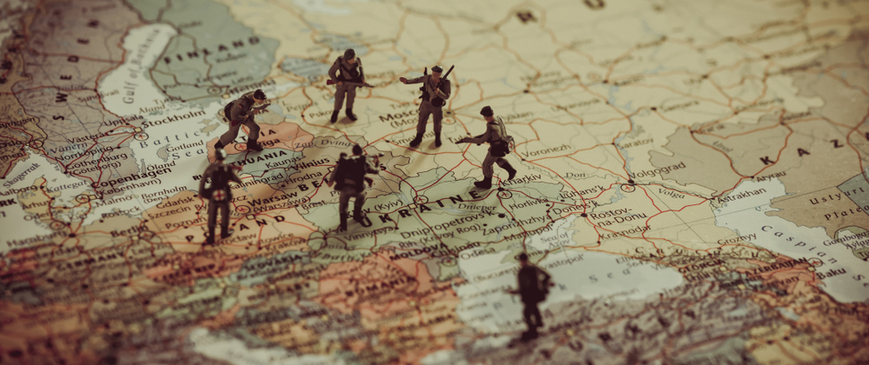
Interview with Ian Bond: 'First Invasion in Europe since 1974'
The director of foreign policy at the Centre for European Reform, Ian Bond, is a former British diplomat who knows Greece well, not least because he studied Classics at Oxford.
The Turkish invasion of Cyprus is a distinct chapter in British diplomatic history (and Britain remains a guarantor power of the island), and inevitably, it didn’t take long for Bond to discerned the similarity between the Turkish invasion of 1974 and the ongoing Russian invasion of Ukraine.
Are we living the end of the post-Cold War period?
We haven’t seen anything like this in Europe since the 1974 Turkish invasion of Cyprus. The Russian invasion of Ukraine will force Europe’s leaders to think much more seriously about national defense.
Does London feel unease following Germany’s abrupt decision to rearm?
Quite the opposite. Germany was always expected to provide for the land defense of Europe in case of a crisis.
Has Vladimir Putin managed to reunite the West?
Yes, for now. But I would not expect that this kind of unity will continue if we see a ceasefire in Ukraine and things go back to normal.
Britain appears to have risen quite impressively to the challenge of standing shoulder to shoulder with the European Union, particularly after years of Brexit rhetoric and distancing itself from the continent.
Britain should do more to tackle the problem of money laundering. A lot has been announced but we have yet to see some serious signals. By the way, these kind of sanctions should not be regarded as sanctions. Financial transparency should be implemented as a permanent measure.
You had been warning in your articles that Russia would attack unless the West took action since November 2021. Did the West miss an opportunity to deter Putin?
Yes, we did. Western intelligence clearly knew this was coming. But Western politicians thought that the intelligence services were just being alarmist and that no rational leader would invade a neighboring country like Ukraine.
If the West did fail to show Putin the true cost of such an invasion, then it could be said that he might have felt trapped and that he had to invade, and also that there wouldn’t be much in the way of consequences.
I don’t think he got trapped. The war was his choice since long ago. But if you had gone two weeks ago to any Western leader and asked him whether he would agree to freeze the foreign reserves of Russia in case of invasion, you would have got the answer that you were out of your mind.
How did Western leaders cover such a distance in such a short time?
I suspect that this happened because Putin lied to them. [Emmanuel] Macron and [Olaf] Scholz tried diplomacy until the last minute and Putin let them think that diplomacy had a chance. Then the two leaders had to react to this kind of humiliation.
Where are we now? What is the West doing? Do we keep trying to persuade Putin to rethink and turn back or have we declared war on Russia in all but name?
I hope it is not the latter. But you are asking the right question. OK, we are doing these things. But what are we doing them for? Which sanctions would we lift in response to certain steps being taken by the Russian side?
Is it dangerous for Western countries to send arms to Ukraine?
The weapons sent are defensive weapons. For example, anti-tank weapons that are designed to stop armored vehicles. There are no NATO service personnel entering Ukraine. There are no large pieces of NATO equipment entering Ukraine.
How do you judge President Volodymyr Zelenskyy?
No one imagined that a television comedian would turn out to be such an effective war leader.
There is fear that if Putin gets cornered in Ukraine, then the most probable outcome is that he will widen the conflict. He will accuse the West and find a pretext to hit NATO. Do you share this worry?
I share it to some extent but I also think that the signaling from Western leaders is now very clear.
Do back channels still work?
We have to hope so. We should remember that the head of the CIA, Bill Burns, is also a former US ambassador to Russia. Let’s hope he still has some telephone numbers of people in Moscow who will answer the phone.
